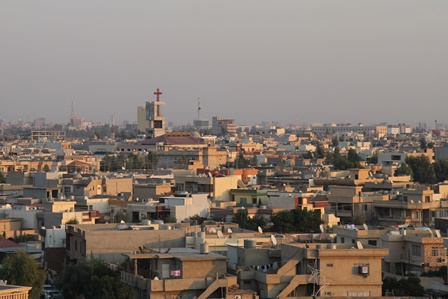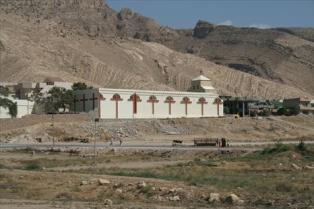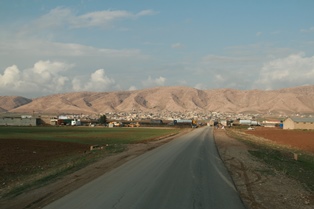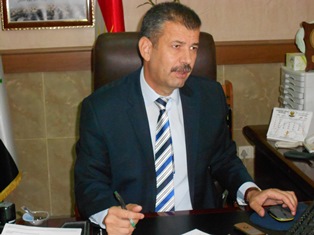
The radical Sunni Islamist ISIS forces continue their takeover of cities in Iraq.
Many have fled possible clashes between ISIS and the Iraqi army, and the feared violence ISIS has already shown in places it controls, such as Syrian city Raqqa.
Thousands are now in Erbil, 88km (55 miles) east of Mosul, capital of the Kurdish autonomous region of Kurdistan: the UN counted 14,000 across one checkpoint near Erbil on Thursday. Locals say it’s always been ‘a different world’ in Kurdistan compared to the other parts of Iraq. One of the most apparently ‘safe’ districts of Erbil (where some expatriates live, and where a few foreign consulates are located) is the Christian district, Ankawa, with about 35,000 residents.
World Watch Monitor spoke to five families now taking refuge in a local church there: 13 adults and six small children, including a church leader, with his wife and grown son. They came in four cars from Mosul: it took them 13 hours to do what’s normally a one-hour drive.
The families’ encounters
A family with four small children, three to nine-years-old, living in the most dangerous area of Mosul – similar to the Green Zone in Baghdad – said after ISIS reached Mosul on June 6 they planned to leave early Tuesday morning around 7 am. But on Monday evening – while they ate dinner – two homes next to them were hit with RPGs and set on fire.
“We left the food and ran,” the wife said. “We didn’t even stop for our shoes, we fled in our sandals! We just made sure to take our I.D.s and important papers. The children were very scared.”

They had very little credit on their mobile phones, and all the shops had stayed closed those few days. But they managed to connect with the four other families and co-ordinate to leave together for Erbil. They were first going to hide in the basement, but then decided to flee around 10pm Monday night.
Soldiers on the street said they would have to walk because they couldn’t take their car – it was too late, the Da’ash (ISIS) had already come to the area. The soldiers were not to allow people to leave, but they didn’t stop them.
“There were lots of families walking, everyone was moving, it was crowded in the streets in the middle of the night,” explained the family. The husband did get to go back and get their car. They saw dead bodies on the streets, soldiers and policemen. “We learned that just a half-hour after we left home, the Da’ash came to our area.”
“Now there are zero Christians in Mosul. It was bad before, but never like this, when the Da’ash stayed. They are from everywhere, Pakistan, Afghanistan. They came in on Friday night. First they took the west side, it was four days of fighting. But then in just 2 hours, they came in and took the east side [of Mosul].”
An older woman spoke of the long trip leaving Mosul: “We saw many people crying, and very angry. But we were singing praise songs in our car. We saw the sunrise, and we were saying, ‘O God, You are good. Thank You for this peace we have, we didn’t sleep all night, and still until now, but we are not angry. When we are rich in God, it is very special in these kinds of hard times.”
At one place where they were stopped waiting to pass, she saw some young men who were very angry. She went over and said to them, “Do you believe in God?” When they said yes, she asked, “Can I pray for you?” So they said ‘yes, please pray for us’. So she prayed with them there. “And I’m still praying for them now,” she added.
The church leader joined in: “Pray that we can return quickly to Mosul, because the future is unknown for us all. What kind of jobs we can get here is limited, and of course students missed their final exams, which are now postponed. How can we live, find work for an income? The church is helping us temporarily with living expenses, but we can’t stay here forever. If we cannot return, we will apply for residency here in Ankawa. We believe God will care for us, as Jesus said He does for the birds of the air!”
“God is good, all the time!” he added, with a big smile, gesturing to the children tumbling over each other and playing in the tiny hallway. “We pray things will get better, so we can go back to Mosul.”
Upon leaving, the church leader gave a final plea: “Pray for peace in Iraq. We have had enough of wars. Nowhere is safe here.”

Kurdistan a sanctuary
This temporary sense of Iraqi Kurdistan providing a safe haven for minorities is echoed by an Iraqi Christian in Ankawa: “As long as [Prime Minister Barzani] is in power here in Kurdistan, there won’t be a problem for the Christians here.”
A journalist for local news agency Ankawa.com backed this up: “There are 200 Christian families from Mosul now in Al Kosh, at the Mar Girguis (St George) Monastery…The people in Mosul are helpless, they don’t trust anyone. Anyway in Iraq, Kurds and Arabs don’t trust each other, Sunnis and Shiias don’t trust each other. So they fled, most without their vehicles, just left walking, to Dohuk, to Al Kosh.. But we have heard that the army has taken back the Governate Building in Mosul.”
World Watch Monitor also spoke to Jalal Aziz, the District Director (Mayor) of Ankawa, he said, “I don’t wish for anyone to go through this fleeing for their lives, Muslims or Christians. I hope the Da’ash will not get here to Erbil. So far it is not directly affecting us. We are independent here, and it is safe…”
“Christians who have relatives or friends can come to live here if they will sponsor them. There are no camps here in Ankawa for the new refugees from Mosul, those are all outside Erbil, set up by the Kurdish Regional Government, KRG. But we are really helping with supplying food, water and clothes to these government camps,” said Aziz.
He continued, “We trust the KRG to protect us. We have all freedom to worship and celebrate our religious holidays, and the government gives us special security here. When Christians have come from Baghdad, they are given lands to build churches and settle here. We even have 120 Sabean families (the followers of John the Baptist) who have fled here from the south.”
Q&A with the District Director of Ankawa

WWM: Are you personally anxious now about what could happen here in Erbil?
Jalal Aziz: “We hope, we trust that the government will protect us.”
WWM: Do you think this takeover of Mosul will cause more Iraqi Christians to leave Iraq?
Jalal Aziz: “It depends on the situation; if people are able to get back to Mosul again, or whether they will have to stay in other safe areas.”
WWM: There are (unconfirmed) reports that Christians have been taken hostage in Mosul?
Jalal Aziz: “Yes, we’ve heard they have taken Christian hostages. The Christians of Iraq are a big target, they always are.”
Current climate in Mosul
One Christian couple reportedly returned to Mosul today to retrieve important documents, and called to say the city was virtually deserted, without any sign of the Da’ash.
Meanwhile, a reporter for BBC Arabic, who interviewed many people who’d left Mosul to flee to Iraqi Kurdistan, said that he had asked everyone who would speak to him whether they had seen ISIS troops harming civilians, and they all said they had not; and that ISIS forces had not stopped them from leaving Mosul.